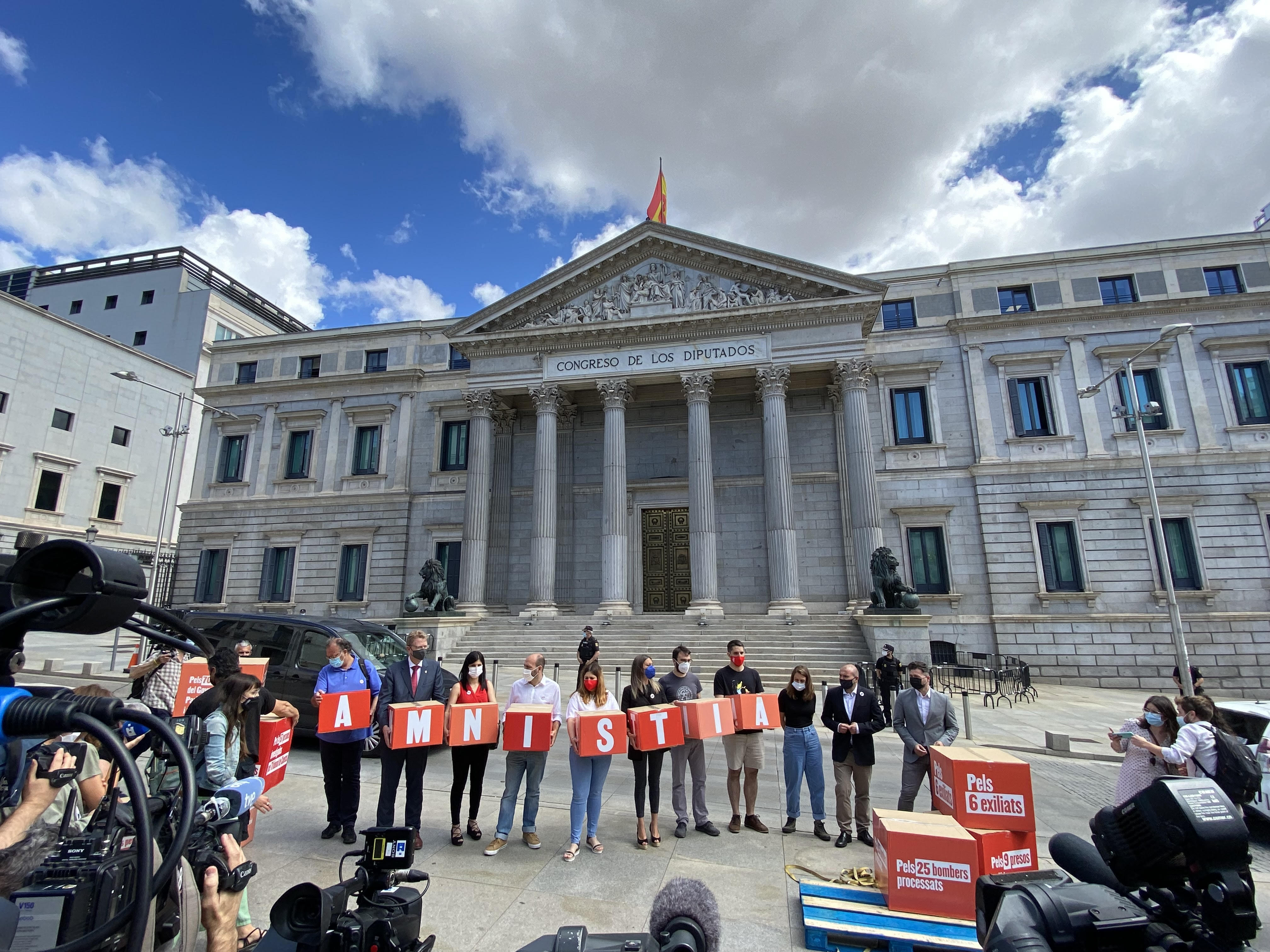The amnesty law agreed between the Spanish Socialists (PSOE) and the Catalan pro-independence parties, which has made possible the investiture of Pedro Sánchez as new prime minister with the votes of Junts and ERC, has generated a wave of protests in Spain, with large demonstrations in much of the state. In Catalonia, however, the public sees it with good eyes and 60% are in favour of wiping the slate clean for those prosecuted for independence process offences, according to the latest survey from Catalonia's CEO public polling agency. About half as many - 31% - are against the law and 9% are not clear about their position. However, the acceptance of the amnesty law, which the PSOE registered in Congress this week at the start of its process for legislative approval, has a very different level of acceptance among voters of the main Catalan political blocs.
The most favourable to the amnesty are the supporters of the three main pro-independence parties, the Republican Left (ERC), Together for Catalonia (Junts) and the Popular Unity Candidature (the CUP), even though the leadership of the CUP has criticized the measure. In each of the three parties, 94% of voters are in favour. Also strongly in favour are those of the left-wing Comuns, at 83%, with 12% against. The degree of acceptance, however, drops significantly in the case of Catalan Socialist (PSC) supporters. While Pedro Sánchez himself argues that the law must be passed "making a virtue out of necessity", only about half of Socialist supporters in Catalonia support the amnesty (49%), although this figure comfortably beats those who are against (41%).
The pro-Spain right: mostly opposed to the law
Meanwhile, supporters of the three Spanish nationalist right-wing parties in the Catalan Parliament are all clearly opposed to the amnesty law, although there are some nuances in their opposition. For one, 33% of Ciudadanos voters are positive about the bill, while the figure falls to 6% in the case of the far-right Vox and the People's Party (PP) is in an intermediate position, with 20% of its supporters in favour of the amnesty. These three parties all took part in the demonstration against the proposed law on Sunday 12th November, which attracted around 6,000 people, a figure much lower than in some other cities around the Spanish state - 80,000 people gathered in Madrid, according to the Spanish government.
If we look at the position of Catalans regarding the amnesty according to their self-location on the left-right axis, the CEO finds great differences. Left-wing (83%) and centre-left (78%) voters are the most in favour of this measure - which apart from its effects on those prosecuted in Catalonia has also allowed a new centre-left coalition government to be formed in Spain. Catalan voters who are in the ideological centre only slightly favour the amnesty, with 49% approving it and 40% against, with 11% unsure. In contrast, among centre-right voters the percentage in favour falls to 43%, and it falls even further, to 30%, among those who say they are right-wing voters.
Main photo: Presentation by Òmnium outside the Spanish Congress in 2021 of a petition seeking a Catalan amnesty law, with more than 200,000 signatures / Photo: N. Tomàs

